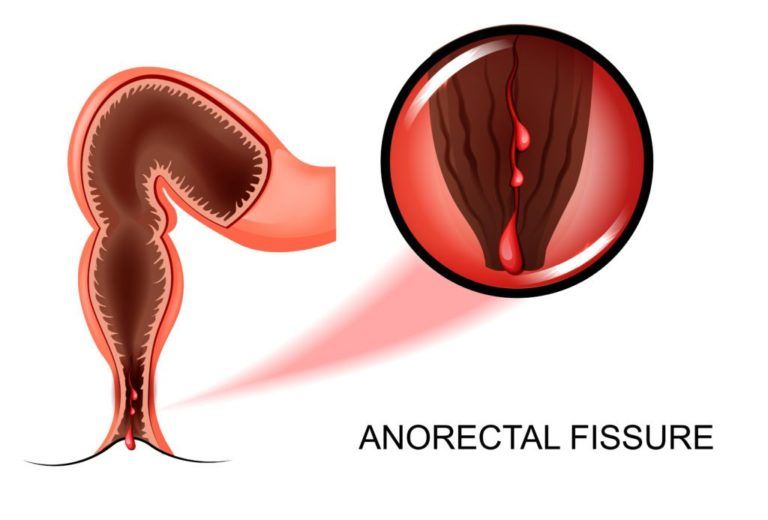Anal Fissures

Anal fissures are tears that occur in the membranes on the inside and around the anus. They are often brought on by health issues or trauma to the anal canal. Examples include childbirth, passing hard stools, constipation, frequent diarrhea or inflammatory bowel disease. While most anal fissures are not serious and eventually heal on their own, but some cause chronic symptoms and do not improve with time.
Did you know…
that anal fissures occur in people of all ages and health backgrounds? Fortunately, most of them heal on their own in one to two months without the need for medical intervention. If you have an anal fissure, see a general surgeon for a consultation to determine what treatment may be necessary.
Frequently Asked Questions
What are the symptoms of anal fissures?
Since fissures are tears in the lining of the anus, symptoms may include sharp or stinging pain during and after bowel movements that lasts several minutes or hours. It is normal for bleeding to occur with anal fissures, though it is typically only noticeable as a few bright red spots on the toilet paper or a few drops of blood in the toilet. Sometimes, anal fissures may also cause the sphincter muscle around the anus to spasm.
Is there anything I can do to prevent anal fissures?
Anal fissures are caused by a trauma to the anal area, which may occur in one of many different ways. The most common causes of anal fissures are related to bowel problems, such as constipation, diarrhea or passing large stools. In these cases, fissures may be prevented and kept from worsening by drinking plenty of water and eating a fiber-rich diet. Keep in mind that once you have one anal fissure, you are more likely to develop additional ones in the future.
How do doctors treat anal fissures ?
If you have an anal fissure that is not healing on its own, it may be time to see a doctor for medical treatment. Most anal fissures are easily diagnosed during an exam. In some cases, a tiny lighted probe may be used to diagnose an internal fissure. If possible, your doctor will treat the fissure by recommending a high fiber diet, exercise and frequent sitz baths. Other interventions may be necessary to help reduce inflammation, relax the sphincter muscle, and increase blood flow to the area to promote healing.
When conservative treatment measures fail, surgery may be necessary – particularly if your symptoms are severe.


